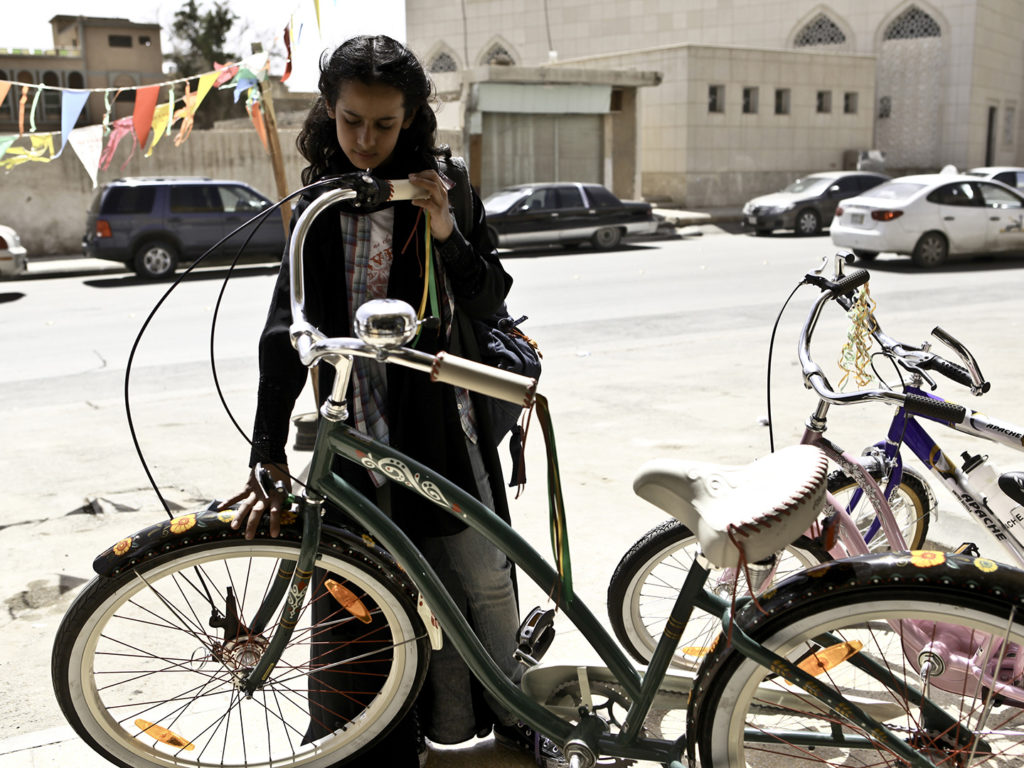Assistant Curator Moya Lawson writes about films by Saudi women directors showing at Tuatara Open Late and a Spring Sunday Screening.
In April this year, the first commercial cinema in Saudi Arabia opened with a private screening of Black Panther. It has been about thirty-five years since religious officials urged the permanent closure of cinemas, accusing the movies of sinful vulgarity and decadence. Crown Prince Mohammed bin Salman’s order to re-establish cinemas is one of several reforms intended to reposition the country, alongside lifting the ban on women drivers. The new system will involve an intense vetting process, where government will decide what films are appropriate before they make it to local screens.
Even without cinemas, Saudi filmmakers have been able to gather an audience. Many studied or are still studying overseas, and, given the hostility they might encounter at home, many make their films overseas too. Women directors make up a significant proportion of the Saudi film industry. In March, The Saudi Gazette claimed that over sixty percent of their filmmakers are women. For many of them, film provides a means to illuminate the forced obscurity of female experience.
City Gallery is showing three of these films. Two short films—Hanaa Saleh Alfassi’s Lollipop (2018) and Nada Al-Mojadedi’s Zaina’s Cake (2015)—screen on Thursday 6 September, as part of Tuatara Open Late. Both were made in California with mainly Saudi casts and crews. Haifaa Al-Mansour’s Oscar-nominated Wadjda (2012), the first feature film made in Saudi Arabia, screens on Sunday 23 September.
Zaina’s Cake is about a girl who wants to sell her cakes through Instagram. The soft-coloured homeliness of the film delivers a simple question, as outlined by Al-Mojadedi: What is her biggest challenge? Truth is, there is a list of them. In contrast, Lollipop delicately considers the fragile subject of puberty through the eyes of a young girl. According to Alfassi, the coding of her body and its consequences for her identity confronts the taboos attached to female sexualisation.
Wadjda tells the story of a determined girl who would like to ride a bike, an activity considered inappropriate. She cunningly enters the Qur’an-recital competition at her school, to win the money to buy one. Al-Mansour’s next film, The Perfect Candidate, about a Saudi woman who decides to run in her municipal elections, is the first film to be backed by the new Saudi Film Council. Al-Mansour has battled to overcome gender bias, even in Hollywood. She once told a man on her crew: ‘If you have a problem taking orders from me close your eyes and imagine I am a middle-aged white man.’
In the light of recent reforms in the Kingdom, the work of Saudi women directors, in and out of the country, necessarily complicates the overarching and contradictory narratives we might read in the news about Saudi Arabia. Their mission as filmmakers is not to educate their audience, but to express, reflect, and critique the local obstacles they face. Their inquiries apply to the experiences of women elsewhere, and, as a result, exceed cultural differences and preconceptions.
—Moya Lawson, Assistant Curator







